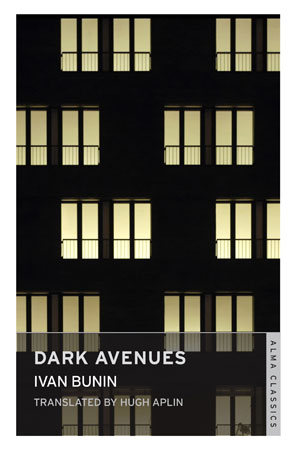 In summary, Emily Wilson’s translation of The Iliad is a tour de force that navigates the fine line between faithfulness to the original and contemporary relevance. While some critics accuse her of excessive modernization, these criticisms often overlook her intent: to make this epic tale accessible to a broader audience without sacrificing its original integrity.
In summary, Emily Wilson’s translation of The Iliad is a tour de force that navigates the fine line between faithfulness to the original and contemporary relevance. While some critics accuse her of excessive modernization, these criticisms often overlook her intent: to make this epic tale accessible to a broader audience without sacrificing its original integrity.
Tag: classics
Homer, Euripides, and Julius Caesar as seen by Shakespeare and filmmakers Joseph Mankiewicz and Uli Edel
 In Homer’s long and legendary poem The Iliad, one of the founding works of Greek and world literature, written in the eight century before the existence of Christ, a great cast of characters, conflicts, and choices seems to contain the wealth and wisdom of the ages: about the seduction and abduction of the Spartan queen Helen by a prince of Troy, and the war that follows, including a fight between the princes Achilles and Hector, there is a clash of cultures, and an exploration of heroism and hubris, that suggest the fundamentals of civilization.
In Homer’s long and legendary poem The Iliad, one of the founding works of Greek and world literature, written in the eight century before the existence of Christ, a great cast of characters, conflicts, and choices seems to contain the wealth and wisdom of the ages: about the seduction and abduction of the Spartan queen Helen by a prince of Troy, and the war that follows, including a fight between the princes Achilles and Hector, there is a clash of cultures, and an exploration of heroism and hubris, that suggest the fundamentals of civilization.
A review of Anna Karenina by Leo Tolstoy
 Anna Karenina is a novel that beguiles and intrigues. The world it depicts and dissects remains fascinating in itself. Its characters are among the most memorable ever created. And the targets and outward forms of social disapproval may be different now to what they were then, but they nevertheless exist. The world is still an awfully harsh place to those who step out of line or who cannot enter into prescribed ways of thinking and feeling.
Anna Karenina is a novel that beguiles and intrigues. The world it depicts and dissects remains fascinating in itself. Its characters are among the most memorable ever created. And the targets and outward forms of social disapproval may be different now to what they were then, but they nevertheless exist. The world is still an awfully harsh place to those who step out of line or who cannot enter into prescribed ways of thinking and feeling.
A review of Dark Avenues by Ivan Bunin
 If you’re looking for a point of comparison, I’d say Bunin as a writer is similar to Chekhov, that’s his model. Though he is darker, more risqué and also narrower in his sympathies. There are some people, you feel, that Bunin is just not interested in – something you never feel with Chekhov. There are some people, you feel, that Bunin is just not interested in – something you never feel with Chekhov. Bunin is a little old-fashioned or out of touch too, you sense. Set in his ways. You read a story written in the ‘40s – and so contemporaneous with Hemingway, Waugh and Greene – and the people are behaving like turn of the century Russian nobility.
If you’re looking for a point of comparison, I’d say Bunin as a writer is similar to Chekhov, that’s his model. Though he is darker, more risqué and also narrower in his sympathies. There are some people, you feel, that Bunin is just not interested in – something you never feel with Chekhov. There are some people, you feel, that Bunin is just not interested in – something you never feel with Chekhov. Bunin is a little old-fashioned or out of touch too, you sense. Set in his ways. You read a story written in the ‘40s – and so contemporaneous with Hemingway, Waugh and Greene – and the people are behaving like turn of the century Russian nobility.
Love and Cruelty and Money: Great Expectations, a novel by Charles Dickens
 It is hard to reconcile daily life and profound thought sometimes, but fiction gives us the semblance of both, reconciled. In Great Expectations, we see how shallow hopes give way to mature duties, friendship, love, and wisdom, when the little poor boy Pip gets a benefactor and a trip to London—he assumes Miss Havisham is his benefactor.
It is hard to reconcile daily life and profound thought sometimes, but fiction gives us the semblance of both, reconciled. In Great Expectations, we see how shallow hopes give way to mature duties, friendship, love, and wisdom, when the little poor boy Pip gets a benefactor and a trip to London—he assumes Miss Havisham is his benefactor.
A review of The Aeneid by Virgil
 I am not a Latinist but I have over the years immersed myself in Latin texts and have a little knowledge of the problems that Fagles faced. Virgil began The Aeneid in the most striking way he could manage and a line or two from near the opening becomes eminently suitable for comparison of the original with Fagles’s translation.
I am not a Latinist but I have over the years immersed myself in Latin texts and have a little knowledge of the problems that Fagles faced. Virgil began The Aeneid in the most striking way he could manage and a line or two from near the opening becomes eminently suitable for comparison of the original with Fagles’s translation.